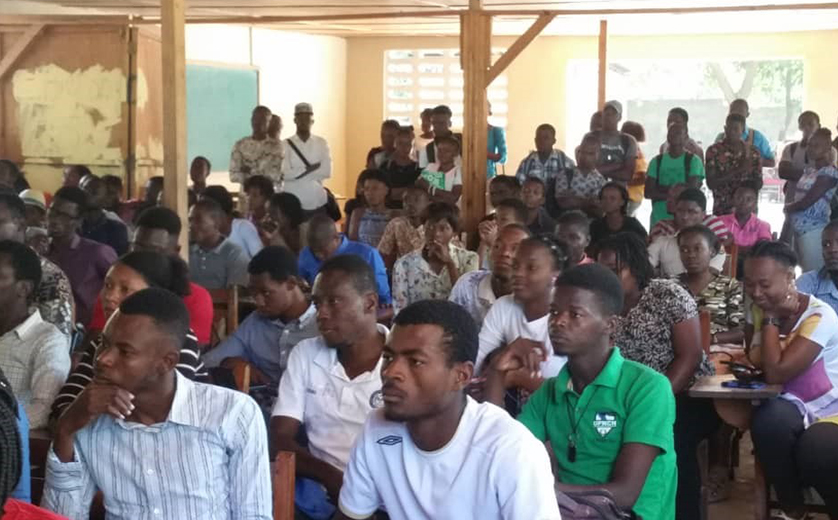Originally published at the Institute for Public Health website and reposted with permission.
Melissa Chapnick
RD, MS, MPH Research Manager – E3 Nutrition Lab
Haiti is among the most recent countries hit by COVID-19. The Haitian government moved swiftly to respond to the emerging pandemic, closing the border with the Dominican Republic and halting all incoming international flights. These travel restrictions may have delayed the arrival of coronavirus, but significantly burden Haiti’s already strained economy.
This is yet another blow to a country which experienced significant political unrest during the past two years. Without strong healthcare systems or a stable economic foundation, like other low-resource settings, Haiti is likely to bear a disproportionate burden of damage due to the outbreak.
In 2017, Université Publique du Nord au Cap Haïtien (UPNCH) collaborated with Washington University in St. Louis to launch the first undergraduate degree program for public health in the country. Students from this program stepped forward to initiate efforts to respond to the COVID-19 pandemic. Understanding the importance of prevention, their efforts focus on timely communication of accurate information about the virus and prevention strategies. Even before Haiti identified its first case, students worked together with the UPNCH administration, the local Washington University research coordinator and the Ministry of Health to organize a panel presentation with experts from public health, medicine, and nutrition.
The work continues as this dynamic team mobilizes to address COVID-19 prevention and treatment in a variety of ways. They developed informational radio, and mobile announcements for 11 areas in and around Cap Haïtien, Haiti’s second largest city. The informational radio announcement, currently set to air eight times per day, addresses basic information about identifying symptoms and the importance of prevention strategies like social distancing. Students distribute posters generated by the United States Centers for Disease Control in Haitian Creole, as well as WhatsApp communication from the World Health Organization. They also prepare to volunteer with the Ministry of Public Health and Population. In the coming days, the team will work with experts at Washington University to derive homemade solutions for hand sanitizers and masks for use in both the healthcare system and by the public.
UPNCH public health program has three cohorts and over 100 students enrolled in 2020. Students come from across the country to attend the program, and recently they formed Haiti’s first student association for public health. Students in their third year are now entering practicum placements within the Ministry of Public Health and Population, as well as local non-governmental organizations.
Under the leadership of Lora Iannotti, Brown School associate professor and Institute Faculty Scolar, and Sherlie Jean-Louis Dulience in Haiti, several faculty, students, and staff from Washington University have designed and co-instructed public health courses with Haitian counterparts. Research collaborations have also emerged in public health nutrition, environmental sustainability, air quality and engineering, enteric disease, child development, and radiology.
Covid-19 first impacted middle- and upper income countries with more extensive infrastructure, population mobility, and urban density. As it threatens low-income countries, the devastation could be monumental. These public health students in Haiti have stepped forward to an enormous challenge and in doing so, set an inspirational example for many around the world.
To learn more about this project, contact Lora Iannotti and visit the E3 Nutrition Lab website.
Acknowledgements: Sherlie Jean Louis Dulience, Lora Iannotti, Delide Joseph, Lourdena Antenor, Henry Claude Saintelmond, Jean Ednor, Ailze Julonet, Michael Galvin.
